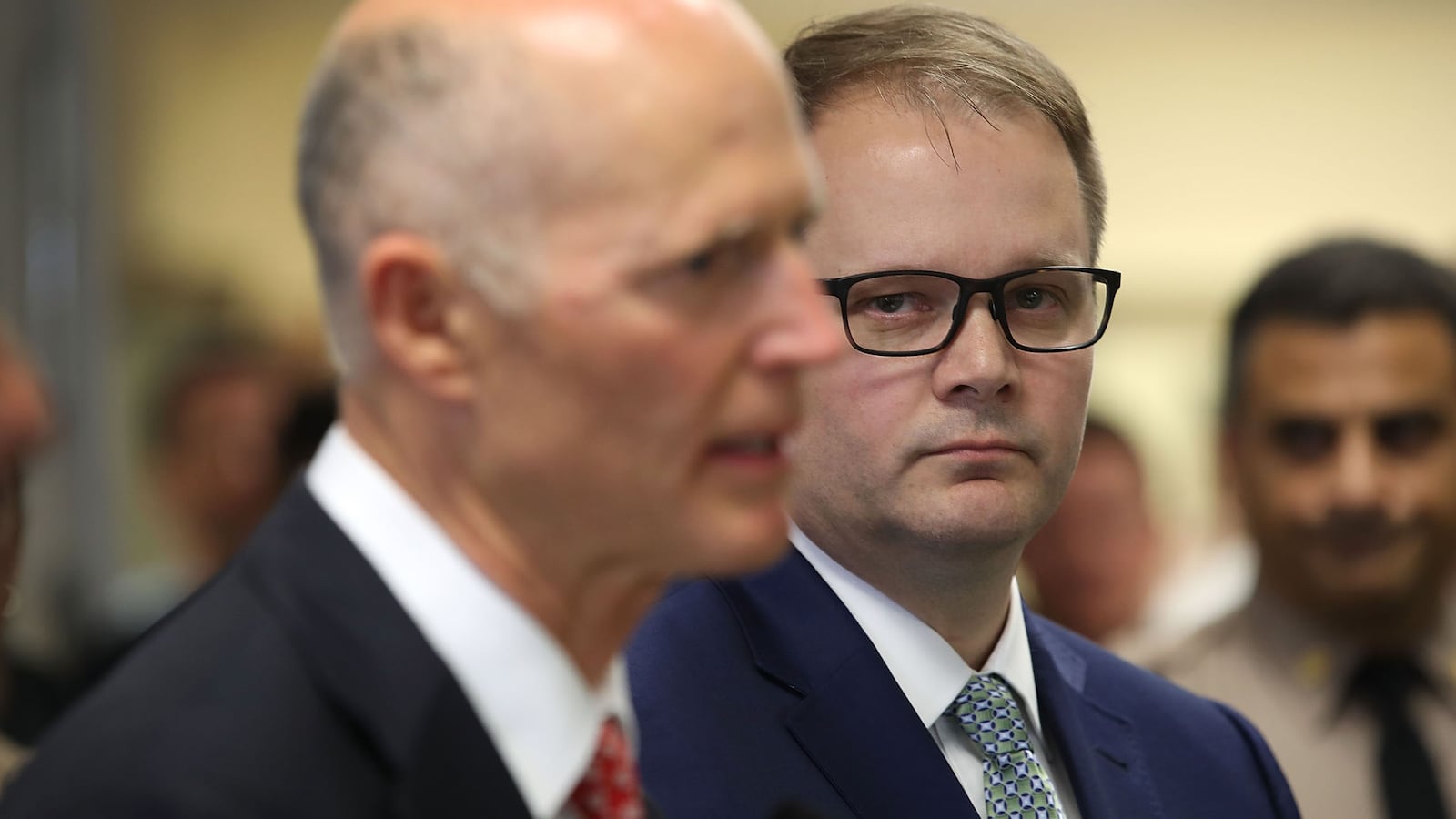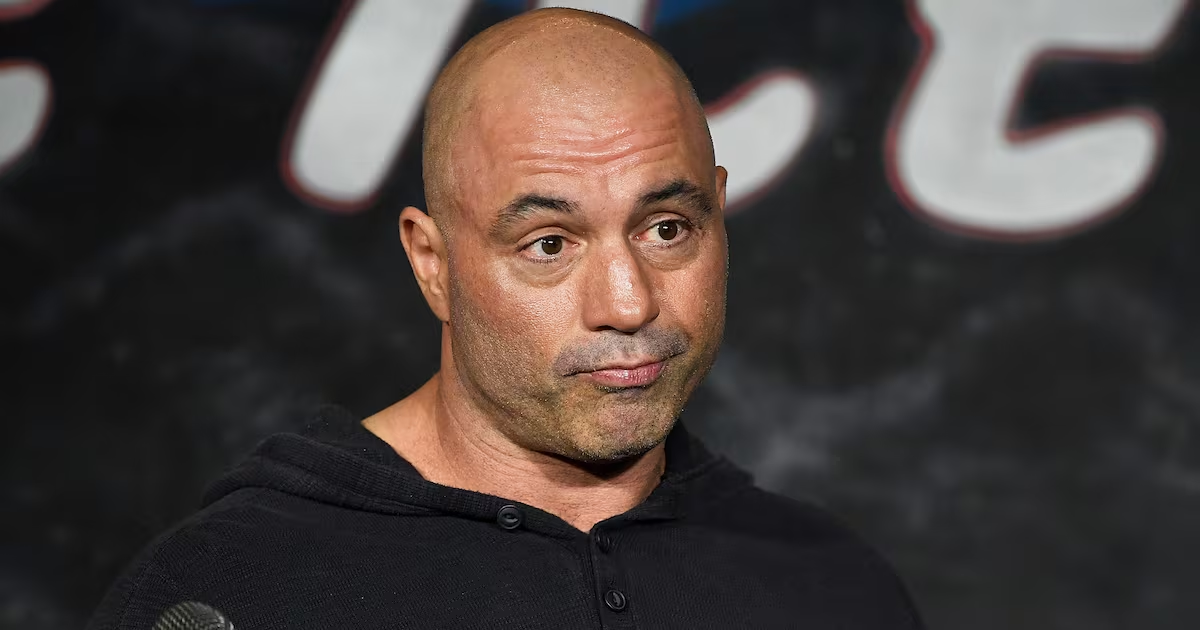Ryan Petty never expected to be involved in one of the most contentious gun control debates in American history. But, then again, he never imagined that his daughter would be killed in the shooting at Marjory Stoneman Douglas High School last month. Alaina JoAnn Petty was only 14 years old.
Now, her death is driving her father to chart a “middle way” through this highly polarized issue during the final whirlwind days of Florida’s legislative session. His goal is to make sure that Alaina’s legacy is remembered as one not of tragedy, but of hope, service, and love.
In an exclusive interview with The Daily Beast, Petty shared how his family’s Mormon faith had sustained them since Alaina’s death, and how he was hopeful that reforms proposed by Gov. Rick Scott (R-FL) could prevent other parents from experiencing the same pain.
Petty speaks with a sincerity and thoughtfulness that is a powerful testament to his faith. Many were moved by his words at Alaina’s February 19 funeral, during which he voiced not only grief for his daughter, but compassion for the troubled 19-year-old young man (I will deliberately avoid mentioning his name) who took Alaina from them.
"We wish and believe," Petty told The Deseret News on that day, "that if somebody had been able to put their arms around him and show him some compassion and love to the extent that would have enabled him to get some help, things may have been very different last week."
"We're saddened he wasn't able to get more help before he made a decision to take other lives," he continued. "We're sad he didn't get a family that could help him."
This steadfast belief that proper love and support could have disrupted the shooter’s path from troubled teen to mass murderer is a large part of what has compelled Petty to step into the public spotlight and fight for reform.
“Florida can lead the nation on this,” he said, while traveling with Scott and meeting with legislators to support the governor’s plan before the state’s legislative session ends on March 9.
Like many Mormons, Petty leans conservative but isn’t particularly ideological. He applauded Scott’s proposed reforms, along with those introduced by Sen. Marco Rubio (R-FL) in the Senate last Thursday. He believes they are a pragmatic recognition that an America polarized on gun control can still find “common ground” to improve mental health services and school security.
“What the governor did is bring in experts and create policies based on that expertise, and he also captured input from students and parents,” said Petty, praising Scott as “balancing heart and brain” and “approaching it as a father and a grandfather concerned about a school safety issue instead of getting stuck in a divisive gun control debate.”
“After every school shooting the conversation inevitably moves to gun control, but each side is entrenched in their positions, the moment passes, and nothing gets done,” said Petty. “I’m not a policy expert just because I’ve been through a tragedy, but there’s enough we can agree on to let us take effective action.”
“This time must be different,” he said emphatically. “This time will be different, because we are going to focus on school safety and keeping guns away from those who would hurt themselves or others.”
Scott and Rubio’s proposals both seek to make it more difficult for dangerous and mentally ill people to access firearms. One element is the “Gun Violence Restraining Order,” an idea that has gained traction recently in conservative circles, sparked by a widely shared National Review article.
Scott also chose to take advantage of a current state budget surplus to direct $500 million for more trained school resource officers, mental health services, and school-hardening measures such as “metal detectors, bullet-proof glass, steel doors, and upgraded locks.” Not all states have money lying around like Florida, and Petty was glad to see Rubio’s plan contemplate a role for the federal government to help implement such improvements across the country.
Rubio’s proposal tackles the issue of federal law disincentivizing schools from reporting dangerous students to law enforcement, a problem that, as I reported for RedState, may have contributed to the shooter’s long and troubled history never resulting in an arrest.
“There were so many threats,” said Petty, incredulous that many warnings about the shooter were continuously ignored. “The police were aware, the school was aware, the FBI was aware, but nobody did anything?”
Broward County’s school discipline policy has come under enhanced scrutiny after the shooting. After Broward Sheriff Scott Israel took office in 2013, his office entered into an agreement with the school district and other community stakeholders (State Attorney, Public Defender, etc.) to disrupt what's referred to as the "school-to-prison pipeline" by reducing the number of students whose disciplinary infractions resulted in criminal records.
Under this policy, other forms of intervention like counseling or transfer to an alternative school were encouraged for low-level offenses such as smoking marijuana, disorderly conduct, or harassment. Controversially, the policies did not mandate arrests even for felonies or acts deemed to be a "serious threat to school safety." Sheriff Israel instituted a juvenile civil citation program in conjunction with this policy, and juvenile arrests plummeted by almost half, presumably allowing a large number of offenders to avoid facing any consequences for their actions.
Florida law makes it a crime to threaten to harm or kill another person, or to engage in cyberstalking, so if the shooter had been arrested for even one of his many reported offenses, it likely would have forced him to surrender any firearms in his possession, as well as prohibited him from legally buying more.
Entering a political debate so fraught with emotion risks a backlash, but Petty said he has been receiving messages from friends across the political spectrum cheering his efforts to encourage meaningful reform. “What we’ve said about trying a different approach has resonated,” he says.
I asked Petty what he hoped people would remember about his daughter. Alaina, he said, loved to serve her community. She joined her school’s Junior ROTC program last fall, following in the footsteps of her 17-year-old brother Patrick, who survived the shooting without injury. Last year, she volunteered with Mormon Helping Hands, assisting people whose homes had been destroyed during Hurricane Irma. It was physically and emotionally challenging work, but “she was there with her friends and loved every minute of it.”
“That’s the legacy we want people to remember -- how she loved to serve,” said Petty. “She was a good friend to everyone,” he added. “She’d walk in and her smile would light up the room.”
A central tenet of the Mormon faith is that marriages are not “until death do us part,” but “sealed” for eternity, binding the spouses together into the afterlife. This eternal bond extends to a couple’s children as well, and has been a powerful comfort in the Petty family’s grief.
“We know we’ll be with her again someday,” said Petty, “and that helps, but we still miss the little things,” like watching television together or seeing her getting ready for school in the mornings. “Those are the sad moments, but we think a lot about her and who she was, and that brings some happiness too.”
“This was a tremendous act of evil that has forever impacted our family,” he concluded. “but there has also been a hundred times more love shown to our family, a hundred times more good and love and compassion, and we are grateful for it.”





